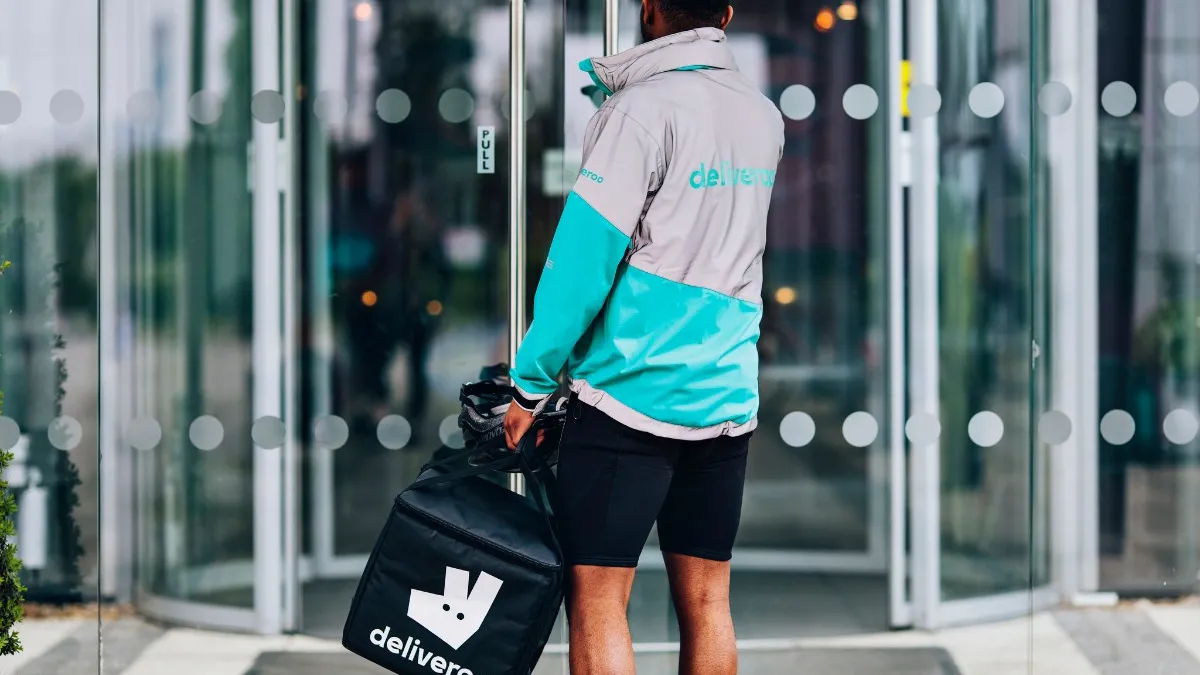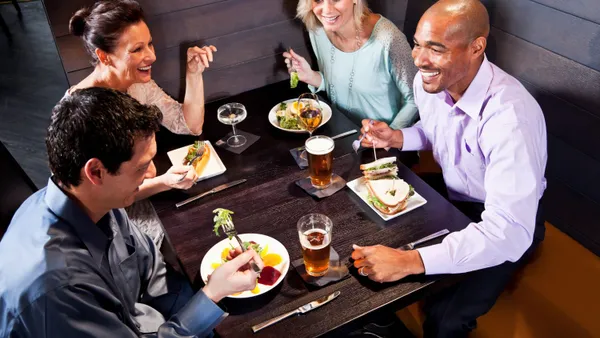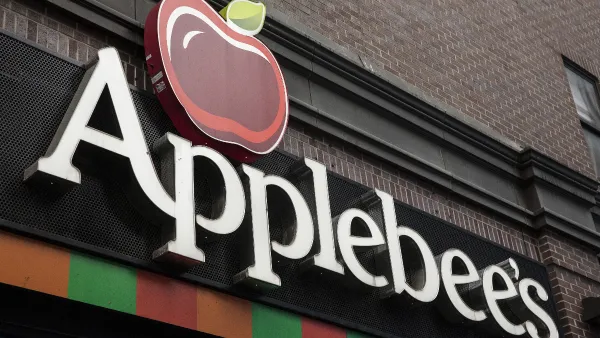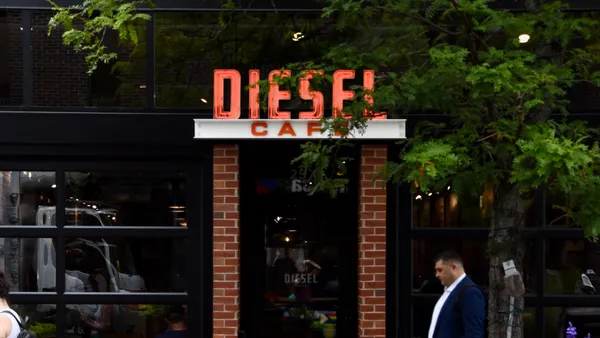Dive Brief:
- U.K.-based food delivery service Deliveroo has launched a "Restaurant Rescue Team" that will identify struggling or recently-closed restaurants and offer them space in the platform's delivery-only kitchens, the firm announced yesterday.
- Deliveroo will also assist participating restaurants — which will be selected based on projected delivery performance in areas with Deliveroo Editions kitchens — with menu development, branding and pricing.
- Restaurants tapped by the Rescue Team will also receive special benefits unavailable to other businesses on the platform for a limited time. Perks include waived rent, equipment, maintenance, utilities, food safety setup and audit fees, as well preferential commission rates.
Dive Insight:
The initiative marks Deliveroo's latest tactic to appeal to restaurant operators in the competitive European delivery market. Last year, it launched a virtual brands incubator program and created a restaurant makeover competition in June.
These programs are savvy investments. The U.K.'s $4.8 billion food delivery market is significantly more mature than its U.S. counterpart, and is dominated by players Deliveroo, Just Eat and Uber Eats, competition that forced out Amazon from the London market in December. Offering attractive benefits could help grow Deliveroo's portfolio of exclusive partners.
Deliveroo isn't alone in adding initiatives that appeal to restaurant operators, however. Uber Eats has also set up 1,600 "virtual restaurants" globally to micro-target customers' and its restaurant accelerator program, launched in London last month, advises stores on how to gear their menu offerings to the delivery market, while Just Eat pledged $1.3 million in February to help stores with low hygiene ratings raise their scores.
In the competitive U.K. landscape, incentivizing stores to partner with them exclusively and filling in market gaps with virtual restaurants that require relatively little in start-up costs offers meaningful advantages to delivery companies. They are likely motivated to create virtual and delivery-only kitchens as much by the prospect of market data collection, as by rent paid by kitchen tenants.
Matt Newberg, a documentary-maker who researches the segment, said that these companies "get footholds in certain markets, in order to leverage them into something larger." Newberg suggested that the end-game for companies that are offering to be an incubator or innovator for restaurant operators is to amass enough market data to be able to undercut the restaurant brands themselves and replace kitchen tenants including, even, those brands that they previously might have rescued.
With the consumer base in the U.K. — and increasingly the U.S. — becoming more delivery-centered, companies such as Deliveroo have an edge. Their data collection provides them a sizeable market advantage, and, at least for the time being, capital to be able to dictate their terms to restaurant operators.













